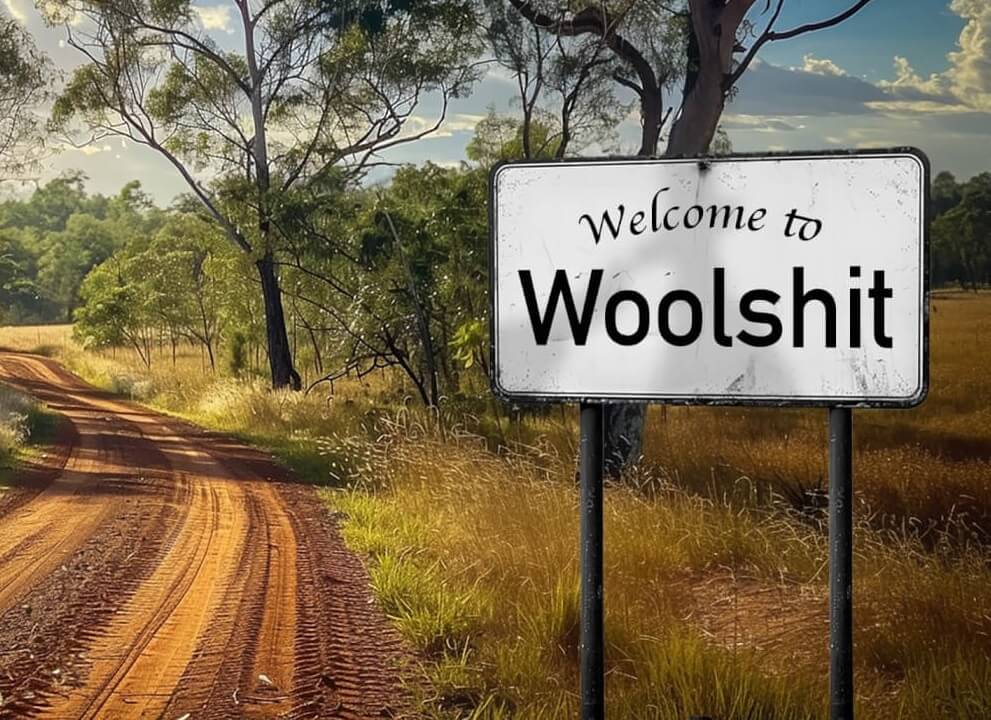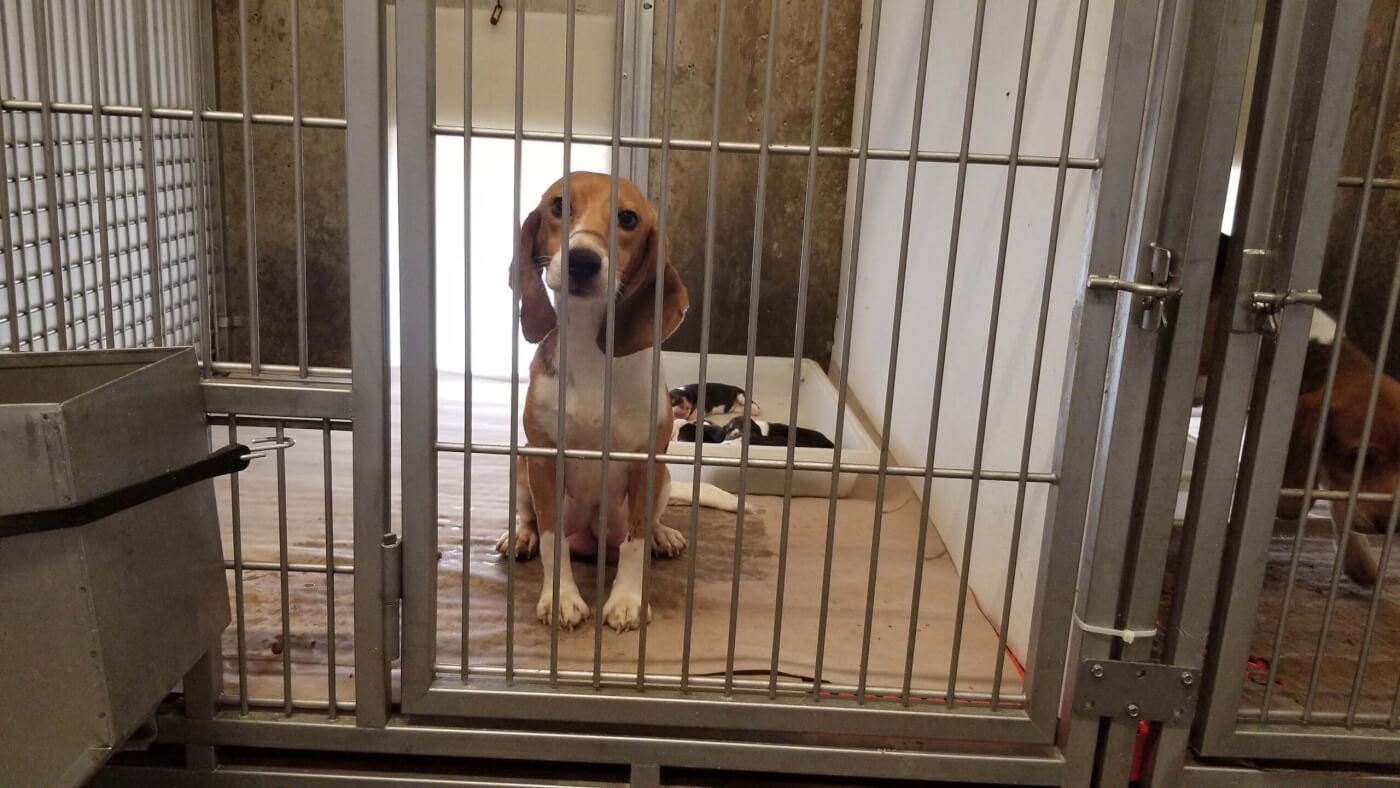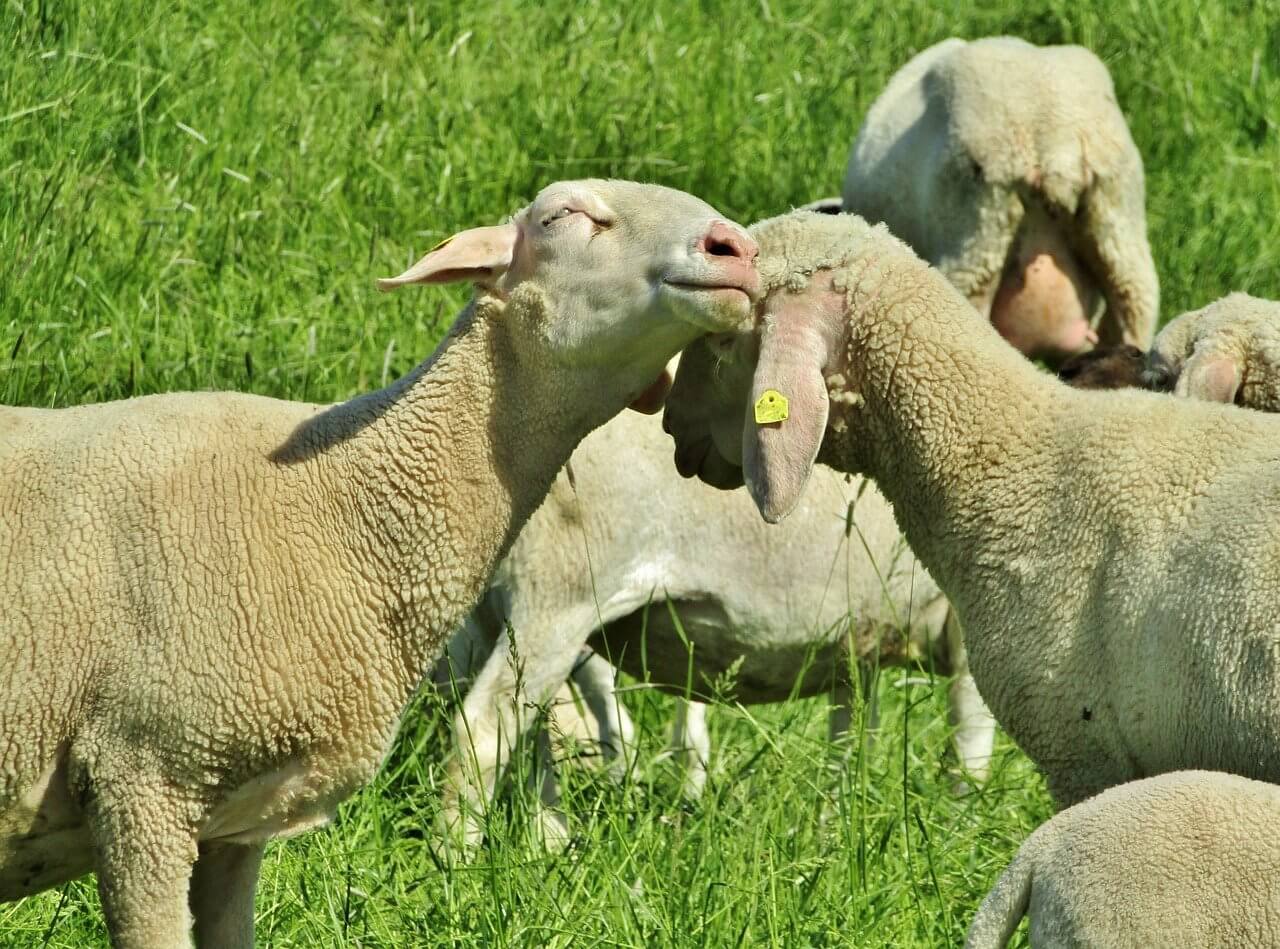
Will Woolshed Change Its Name to ‘Woolshit’?
Claims that using sheep for their wool is “humane” and “green” are woolshit. That’s why PETA is asking Ipswich City Council to change the name of Division 4 locality Woolshed to “Woolshit”.
The name change would draw attention to the wool industry’s use of false claims to promote wool, which is terrible for the environment and causes immense suffering to sheep.

The industry has tried to pull the wool over the eyes of consumers by erroneously implying that wool production is kind to animals and the environment and that the only alternative fibres are made of plastic. In reality, raising animals for their fleece plays a huge role in deforestation, including the destruction of vital koala habitats. Meanwhile, less damaging plant-derived alternatives – from cotton to hemp – are widely available.
By changing the name of Woolshed to “Woolshit”, the council would send a message to consumers that the wool industry isn’t environmentally friendly or cruelty-free and help them see its marketing claims for what they really are. Sheep are sentient individuals, and the climate catastrophe is an urgent problem. There’s no place for woolsheds in the green, kind future we all want.
The Made-By Environmental Benchmark for Fibres ranks wool as a “Class E” fibre – the most severe category – based on its greenhouse gas emissions, toxicity to humans, eco-toxicity, and use of energy, land, and water. Similarly, the Sustainable Apparel Coalition’s Higg Index lists wool as one of the top 10 materials with the highest cradle-to-gate environmental impact.
PETA entities have released seven exposés of facilities in Australia’s wool industry, documenting abuse at each of the 40-plus farms and shearing sheds visited. In one incident, a ewe was likely in labour when a shearer cut her huge vaginal prolapse before using her wool to wipe up the blood. She and her lamb both died. Merino sheep are selectively bred to grow excess wool, which is why their wrinkled skin is prone to flystrike – an issue that a majority of Australian farmers tackle with painful live-lamb cutting (also known as “mulesing”), which involves severing flesh from lambs’ buttocks. This procedure can result in infection and has caused many sheep to die, which is why it’s widely condemned around the world and banned by many fashion brands.
Animals Are Suffering in Laboratories – Help Save Them Now




